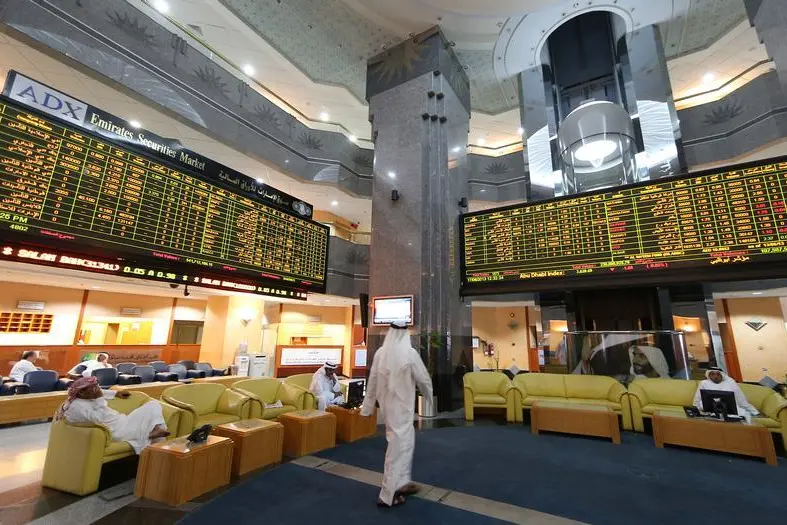PHOTO
Friday, Jun 24, 2016
Abu Dhabi: The UAE’s equity markets are expected to see strong selling pressure especially in early trade after the UK voted to leave the European Union, a move that has sent world stocks plunging.
In stock markets, red was the only colour to be seen anywhere, and in currency markets, it was much the same, with the sterling collapsing to a 31-year low as panic took over investors.
Fund managers expected such negative sentiment to echo in the UAE’s markets.
Mohammad Yasin, managing director of the National Bank of Abu Dhabi Securities, said UAE markets will feel the heat specifically from currency markets and oil markets. Oil prices plummeted to $47.58 (Dh174.60) shortly after trade began.
“If the day continues to be as red as it is now, we may see selling pressure coming from foreign institutions especially on stocks that are in the Emerging Market space. How long will that take? I don’t think markets will move in one way all week. On Sunday, I would not be surprised if I see a five per cent move initially especially since the decision took a lot of investors by surprise,” he said.
In the few trade sessions prior to the Brexit news, global stocks rallied, with European indices jumping nearly three per cent a day as polls showed the Remain camp was gaining momentum.
The fact that a Brexit hasn’t been priced into the markets exacerbates the pressure even further.
High volatility
“There is very high volatility now. The banking sector drop of 19 per cent today is the highest since 1987, so I think this kind of volatility will ignite automatic orders to sell or to balance portfolios. You have algorithms and machines handling [trade] and these don’t handle volatility well,” NBAD’s Yasin said.
He expected markets in the region to follow in the same footsteps as global markets for another few weeks until financial results for the second quarter of 2016 come out in late July and provide new direction.
“If we see the pound go to $1.20, for example, or oil fall another 10 per cent, then we’ll have to worry that the effect could be even bigger on our markets. If we see some stability, this will be absorbed. In Dubai, the index needs to stay above 3,200-3,250 levels but if we break that level, we’re going to 3,000,” Yasin said.
Other analysts echoed a similar sentiment of uncertainty, saying that Britain’s exit from the European Union is an unprecedented event. This fosters an environment of uncertainty as it becomes hard to predict what may happen next.
Investors will also need to keep an eye on what the UK and the EU would do next as the negotiations are expected to take time. Some analysts suspected the EU may strike a deal with the UK and negotiate other terms.
Technical analysts, Osama Al Ashry, said he did not expect the UAE’s markets to hit new lows especially since they have already touched new lows in January 2016.
“The GCC’s markets will definitely be impacted by the Brexit but the support levels are a little far away now, which gives the index some room to fall without being too alarming. I don’t think the main problem will be this week, though. World markets will continue to drop gradually, which means that the UAE markets will follow,” he said.
The Dubai Financial Market (DFM) index has a support level at 3,044 and another support at 2,781, Al Ashry said.
Ten per cent drop
“The difference between developed markets and emerging markets now is that developed markets like the US are overvalued, so from a technical perspective, it’s not surprising to see them plunge. In the UAE, however, the valuations are reasonable, so technically, they shouldn’t fall too much from here,” he said.
He expected the DFM index to end the week with a total 10 per cent drop.
Meanwhile, Sebastien Henin, head of asset management at The National Investor, pointed out that from a fundamental view, Brexit’s impact on the UAE is pretty limited.
“In Europe, it makes sense for stocks to be falling because there’s a direct impact on trade, politics, and currency, but the UAE is far from that. I suspect that things could stabilise in the coming sessions.
I suspect we will have a weak opening on Sunday but, on the medium term, I’m not too negative,” he said.
Henin added that markets may stabilise in Asian and the US over the coming trade sessions, with the volatility being concentrated in Europe. Such stability could echo in the UAE and calm investors.
By Sarah Diaa Staff Reporter
Gulf News 2016. All rights reserved.





















